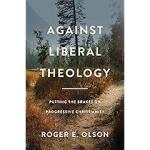My friend George Handley wrote a wonderful piece here at Patheos last week, "Born on Third Base." In the essay he argues thoughtfully that we ought to be quicker to acknowledge our debt to the hidden circumstances and people, the "conspiracies of love," that undergird our achievements and privileges. We ought to be much slower to claim personal credit for our successes—or to assign blame for others' failures. Individual moral merit or effort, after all, accounts for a vanishingly small proportion of our ultimate welfare when considered in the broader context of swirling cultural and geopolitical forces. He writes:
We cannot imagine that our morality is determined by individual agency in a small sphere of influence alone since we are not only parents, children, siblings and neighbors but also citizens, consumers, employees, users of public goods, members of a culture and participants in traditions that are collectively generated.
George's point here is related to the larger philosophical project that has animated his work for some time now, a gentle Christian anti-humanism that aims to displace the atomized, autonomous self from the center of contemporary Christian ethics. His book Home Waters is structured by the insight that the soul is like a watershed: that is, the soul is a gradual gathering of disparate flows, not an intact unit of identity. And, as with a watershed, we have collective stewardship over the welfare of one another's souls; we suffer collectively for our neglect.
I agree wholeheartedly with what George writes here. It is exactly the message that I need to hear, again and again, as I slip each day toward complacency or judgment: I did not make my own life, I do not choose my privileges and pains, I will not bend the universe to the shape of my wishes. I wish it were preached from Mormon pulpits on Sunday mornings across North America: a bracing reminder of our own nothingness is tonic for the bloat and solipsism of the Western soul. My own writing has obsessed over these same questions of selfhood, albeit with less style and lucidity.
Furthermore, I suspect that what George writes is actually true. That is, I am persuaded by the suite of ideas - as yet incomplete, of course—emerging from philosophy, sociology, and neuroscience suggesting that subjectivity and choice arise at least in part from biological and ideological substrates, prior to consciousness and beyond will.
In short, amen and amen.
But.
What if we were standing not on a well-watered, carefully-mowed American baseball diamond, but on an improvised Brazilian campo de futbol or a ragged Indian cricket pitch? Or a ramshackle basketball hoop in a dangerous urban playground? That is, what of the global South, to which the center of Christian gravity is inevitably shifting, or of the pockets of poverty that persist in the developed world? While a bracing corrective to complacent individualism is exactly what the doctor ordered for the educated, comfortable audience for which George and I write, I wonder whether the prescription is the same for a population that is far less secure, for whom strong institutions and social safety nets are inaccessible, where social trust is low because survival is uncertain. It's not that notions of rugged, self-made individualism are somehow more true in developing populations, but it may be the case that the absence of institutions and economic opportunity makes individual effort more important at the margin.
Moreover, mere belief in individualism may foster the sense of self-efficacy that motivates planning and investment in the future. An interesting study—offered here as illustration rather than evidence, since neuroscientific research is notoriously difficult to interpret --- found that inducing disbelief in free will seems to impair the brain's capacity for pre-conscious planning of actions. It may be that the Horatio Alger tales so popular as a younger America moved through the social upheavals of industrial development, tales of rags-to-riches success predicated on determination and hard work, served a useful ideological function.
There's an icky paternalism about a privileged American like me speculating on what's best for the developing global South, especially when that speculation involves the promulgation of "noble fictions" that I suspect to be false. The thinkers and leaders of Brazil and India—and the rest of the global South—are the ones who are rightfully working out the Christian ethics that will govern the global shift in gravity that may be coming. I get that. Still, and especially in a highly centralized church like mine, perhaps I ought to take into account the global implications of the ideas that I promote. In the end, whom do those ideas serve best, the baseball player or the cricketer?
12/2/2022 9:09:20 PM





